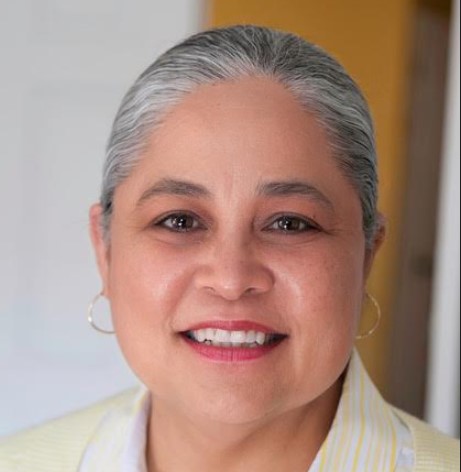4 Tips For New Edtech Professionals
INNOVATIVE LEADER AWARD WINNER - Advice for those new to the edtech field from award-winning technology director Sandra Paul

Sandra Paul became an educator thanks to a happy accident. She was a computer technology major at the University of the Virgin Islands and was asked to assist professors in the education department switch from Macs to PCs. After Paul helped these educators learn about their new computers, the dean of the education department was impressed with her abilities as an educator.
“She told me, ‘You'd make a very good teacher,’” Paul recalls.
Paul decided to combine her passion for technology and her new passion for education and pursue a career in edtech. She has worked in the field since the early 1990s and is currently the Director of Technology for Township of Union Public Schools in New Jersey. She recently was honored with the Innovative Tech Director Award at Tech & Learning's Innovative Leader Awards during a Regional Leadership Summit in New Jersey.
As a woman of color in a white male-dominated field, Paul has had to overcome obstacles because of racism and sexism in addition to the standard challenges faced by technology directors, including limited funding for technology access for all. She's also had to conquer the many issues all school IT departments face, such as cybersecurity threats.
Paul offers advice for those starting their careers in edtech.
1. Tips for New Edtech Professionals: Find a Mentor

Paul advises those entering the edtech profession to look for someone who they believe will provide mentorship.
Paul never had a mentor herself, but feels connecting with one early in her career would have made things easier. “There was many a tough time that I've had to deal with a difficult technology issue, and I had to deal with it on my own,” she says. Not being able to call someone on the phone and brainstorm technical solutions can be overwhelming. Finding someone who can be relied upon to provide guidance and counsel is invaluable.
Tools and ideas to transform education. Sign up below.
2. Get Involved With Professional Organizations
“Joining organizations is very helpful,” says Paul, who has been a member of ISTE and other education professional organizations since the 1990s. These give her access to presentations, white papers, discussions, videos, and best practices for handling the myriad situations and challenges modern edtech leaders face.
“All those things add a lot to your plate, but also encourages you and gives you some guidance on how to move forward,” she says. “Any new person who wants to get into this field – they should not handle it by themselves. It's a little bit more overwhelming than it was when I was just connecting printers or fixing PCs.”
3. Get Creative To Get Funding
Funding, or a lack thereof, is something every edtech leader will likely have to deal with during their career. “Because of financial constraints, you're not able to impact as many kids as you wish you could,” Paul says.
To overcome this in her own career, Paul says she had to look beyond the district’s budget by asking, “'Is there alternative financing that I can look at?' For example, grants or donations or that type of thing.”
Getting creative in this way can help bring more access to technology to more students, even when school budgets are tight, which, let’s face it, is pretty much always.
4. Model Success for Students
If you are a woman or minority working in education IT, your success can help encourage students to follow your path, and potentially even let them know that there is a future for them in a lucrative STEM field.
Paul has not lost sight of that in her career and it is one of the things that has motivated her through difficult periods. “I'm not giving up because I see that it's important for female students and minority students to see me as a model of working in the field of IT,” she says.
Erik Ofgang is a Tech & Learning contributor. A journalist, author and educator, his work has appeared in The New York Times, the Washington Post, the Smithsonian, The Atlantic, and Associated Press. He currently teaches at Western Connecticut State University’s MFA program. While a staff writer at Connecticut Magazine he won a Society of Professional Journalism Award for his education reporting. He is interested in how humans learn and how technology can make that more effective.

